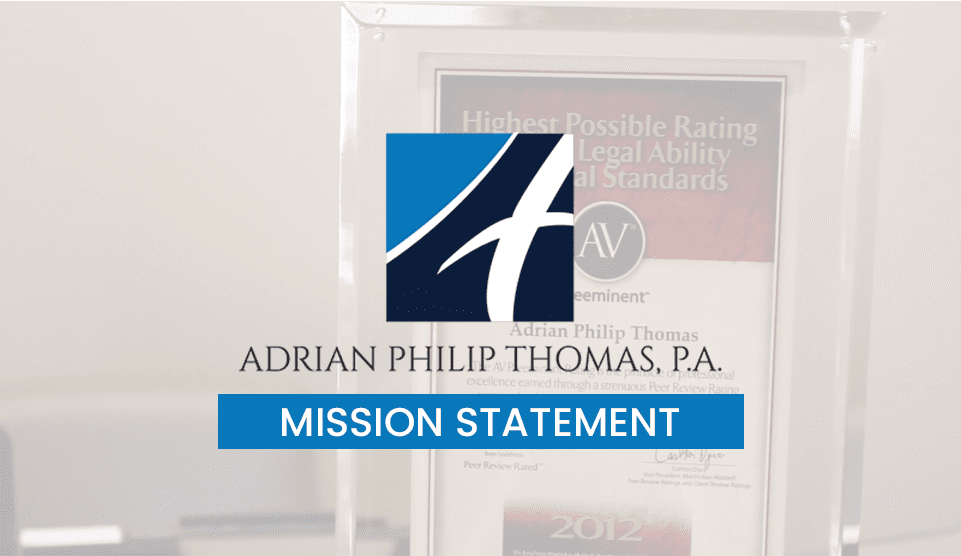
Florida Probate Litigation Attorneys
Aggressive Representation for Complex Probate Matters
Probate is the legal process in which a person's debts are paid and their assets are distributed after death. Unfortunately, adversarial matters arise in probate that requires the filing of a formal lawsuit referred to as estate litigation or probate litigation.
There are many requirements placed upon the probate process by Florida law when a deceased person’s will is offered for probate. Creditors and heirs are all accorded various rights, privileges, and limitations that must be strictly followed. Although will itself is available for review, sometimes, not everyone involved is satisfied with the result, which can lead to a will contest by surviving family members and potential beneficiaries.
In such situations, having knowledgeable and experienced legal representation is crucial. An adept probate litigator can navigate the complexities of Florida probate law, ensuring that all parties' rights are respected and all legal requirements are met. Whether dealing with a will contest, creditor claims, or disputes among heirs, litigation lawyers near you in Fort Lauderdale at Adrian Philip Thomas, P.A. are equipped to handle these challenges with precision and care. Their expertise can make a significant difference in the outcome, helping to resolve conflicts efficiently and uphold the deceased’s true intentions.
- Related: /blog/2011/january/do-i-have-a-probate-litigation-case-/Do I Have a Probate Litigation Case? Do I Have a Probate Litigation Case?
Request a complimentary consultation with a probate litigation attorney near you at Adrian Philip Thomas, P.A.. Call (954) 764-7273.
Did You Receive a Notice of Administration?
Probate litigation is usually first considered by individuals when they receive a Notice of Administration. This is a formal document that alerts all interested parties of the death of the decedent, the filing of a will for probate, and that an objection to the probate proceedings must be commenced within a certain period of time.
The recipient of a Notice of Administration will be in a unique situation to dispute on a variety of legal bases, such as lack of mental capacity, undue influence, or improper signing of the will. However, regardless of the simplicity or complexity of their claim, or any promises made to them that things will be "evened out" in the estate or someone will "take care of it," the Notice provisions will hold.
Once an individual is served with a Notice of Administration, they have a limited time period (usually 20 days) to settle any promises, representations, or guarantees regarding the estate dispute or disagreement, otherwise, they become worthless and unenforceable unless the parties have entered into an official settlement agreement.

The Stories That Matter
Read Our Client Thank You Notes
-
"Please know how much I appreciated your hard work and effort representing me!"Jeff, please know how much I appreciated your hard work and effort representing me! Thank you for putting up with me and for never making me feel inept.- S.H.
-
"We cannot adequately express our gratitude for your excellent work in the resolution of this matter."I don't think there is a better way to express how we feel about these attorneys than to show our final message to them: Ryan & Adrian: We cannot adequately express our gratitude for your excellent work in the resolution of this matter. While certainly- MB & KB
-
"Would not hesitate to use him in the future."
Took the time to explain to me what was going on with my case in way that made sense. Would not hesitate to use him in the future.
- F.S. -
"Adrian, Thanks, you’re doing a great job and you’re the best and only lawyer that has been ethical and professionally serious about this case."Adrian, Thanks, you’re doing a great job and you’re the best and only lawyer that has been ethical and professionally serious about this case. You have great communication skills as well. Thank you.- L.A.
-
"I appreciate all your help with my case and your professionalism"Hi Michele, I appreciate all your help with my case and your professionalism. Jeff and Esther were extremely helpful, especially considering the difficult circumstances.- S.J.
-
"Thank you for your time, kindness and help."Mr. Trinkler, Just want to say thank you for your time, kindness and help.- G.W.
-
"Michele, Thank you. This speaks to the excellent work Mr. Thomas & yourself have done."Michele, Thank you. This speaks to the excellent work Mr. Thomas & yourself have done.
-
"Thank you for all you have done."Hi Ryan, Thank you for all you have done. Truly feeling relief and a release, being free from lawsuit. Just wanted to tell you how much I depended on you, and appreciate all you have done.- E.D.


Meet Our Distinguished Team
A Confident, Zealous, and Aggressive Law Firm Committed to You




















